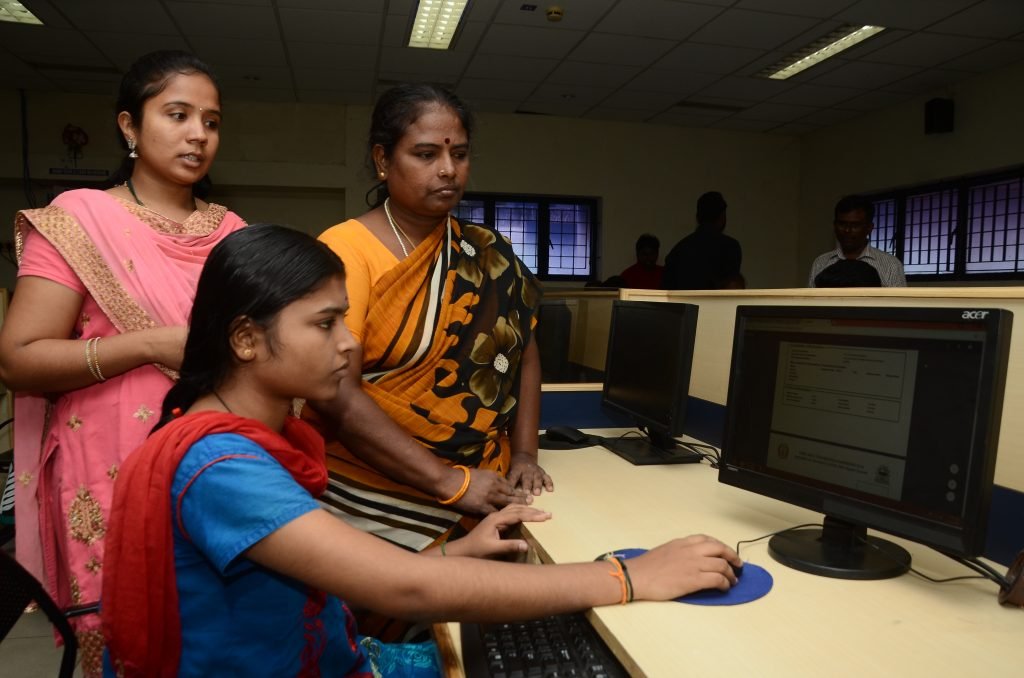Read in : தமிழ்
The High Court ruling awarding extra marks to students who wrote NEET in Tamil will throw the medical admission process out of gear if implemented. The counseling process is underway and students have already been admitted as per a merit list that the HC has ordered to be redrawn.
Many observers say the Supreme Court has time and again intervened to ensure the smooth conduct of NEET and may well stay the HC ruling. Yet, questions over how future NEET tests will be conducted continue to loom especially since the centre has mooted the formation of a National Testing Agency (NTA) to conduct exams like NEET. Tuesday’s judgment that exposed the Central Board of Secondary Education’s (CBSE) lack of expertise in framing advanced science questions in Tamil has only strengthened the board’s refrain that it is not equipped to conduct NEET.
Under the NTA, says Dr Ezhilan Naganathan, a social activist and a practising physician, candidates can take NEET six times, and the tests will be outsourced to a third party. “Even if the HC ruling is not upheld, the Ministry of Human Resource Development will do well to remedy the situation,” he said.
For that to happen, lessons may need to be drawn from the mistakes that CBSE, which conducted NEET 2018, did. “CBSE may have expertise in Tamil but they have shown that they don’t have the capacity to conduct advanced science exams in Tamil language,” he adds.
The correct approach would have been for CBSE to approach Tamil University in Thanjavur or Tamil experts who have a proven record in professional development of Tamil and are authorized by the state government. “Medical education in Tamil is well developed. Tamil medical books have been available for 30 years now. CBSE should have consulted Tamil Nadu government or ensured the use of words in Tamil dictionaries authorized by the government,” says M Muthuvelu, professor of Tamil at Presidency College.
“CBSE should have consulted Tamil Nadu government or ensured the use of words in Tamil dictionaries authorized by the government,” says M Muthuvelu, professor of Tamil at Presidency College.
Muthuvelu says a classical language like Tamil has a highly developed system of coining words. He says the cultural context is necessary to translate English words. For instance, he says, a warm welcome is out of place in Tamil since the weather is mostly hot here and a warm welcome may not be a positive thing unlike for the westerner for whom warm weather is something he or she looks forward to. He also talks about how the Tamil word “thaal” came to be for paper. Muthuvelu says the root word for paper is papyrus that refers to the stem of a plant along the river Nile. A word that would refer to the stubble of a similar plant would be “thaal”, which incidentally is related to the “thaaladi” crop season. In Tamil translation, the experience of people who live in the Tamil region is taken into account, he says, adding words that rural students of the state can relate to from their experience should form the basis of technical words too.
Testing in Tamil is an absolute requirement, says Dr Nalli Yuvaraj, a spine surgeon who teaches at the Madras Medical college. “Only that will ensure that bright rural students who come from Tamil medium education enter medical colleges. Once there, they typically perform exceedingly well. Some of the most well known doctors in Chennai have come from villages and were schooled in Tamil,” he adds. Dr Yuvaraj, however, advocates that after starting medical education the students must learn English. “I have helped to develop Tamil medical literature on various conditions but English helps the medical fraternity stay up-to-date and share knowledge with the rest of the world,” he says.
Read in : தமிழ்
